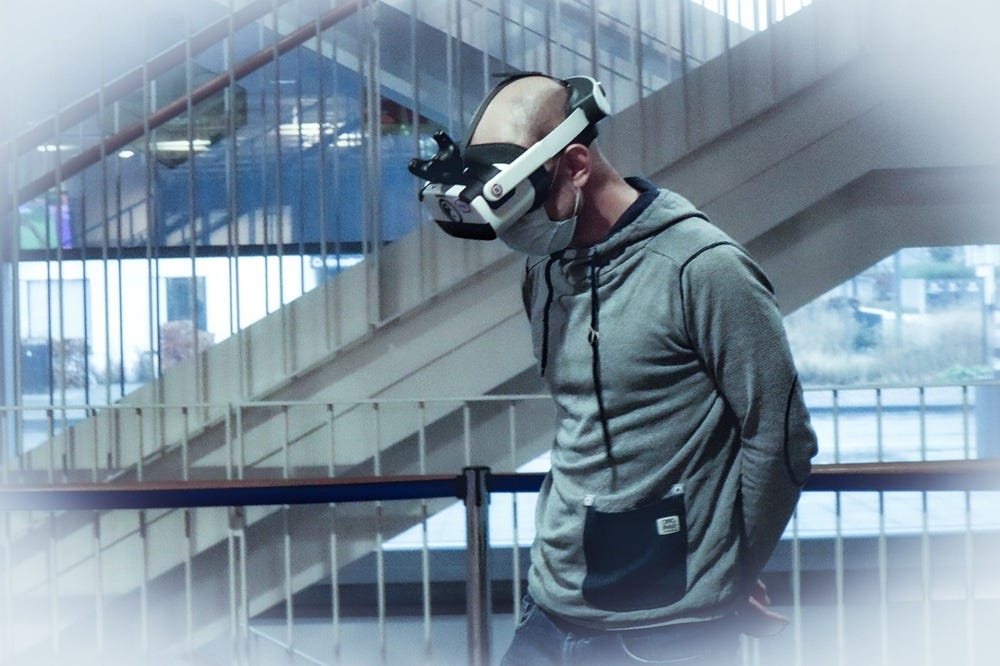Reality is what you make it
Seeing is believing, but when our vision is augmented by technology can we trust what it shows us?
REALITY is what you make it, at least when it comes to the augmented kind. Quite how that will affect us at the individual level and – ultimately – the societal scale is open to question.
Well, that's a conundrum researchers at the University of Glasgow are looking to answer; or at least explore. But, first, we should probably ask, what is 'augmented reality' (AR)?
Simply put, AR is technology that overlays a digital display onto the real-life scenes we perceive with our eyes. The scene may be conceived on the screen of a smartphone or tablet, or via headsets, which is augmented by additional informational displays.
The researchers want to examine the potential positive and negative effects that future generations of AR technologies may have on society.
As they point out current devices can be tucked away in pockets (if we can bear to part with them in such a way), but future devices, such as so-called 'smart glasses' will be wearable. These could, in time, replace the physical displays currently required for many work, leisure and social activities.
One consequence of this is that AR devices will provide an always-on display, which may very well alter their perception of the world. The overlays could create everything from small pop-up message notifications (advertisers will probably love this) to complete replacement of users’ field of vision.
“Augmented reality has huge potential to reshape the way we experience the world, which makes it a powerful potential agent for social change,” said Dr Mark McGill, from the University of Glasgow’s School of Computing Science.
“Just how positive or negative those changes will be is something that we need to think very carefully about now, before AR technology outpaces society’s ability to adapt and legislate appropriately.
“We can’t run the risk of reacting to AR harms after they’ve happened – we need to put the proper guidelines in place long before the technology becomes as common as smartphones are today.”
McGill and his team have won European and UK funding to investigate how such a future ‘augmented society’ might provide people with new opportunities, as well as subject them to new potential for harms.
The research will explore how new forms of social good could come from widespread use of AR, such as by providing them with timely and useful information about what they see in front of them in the real world. The team call this “augmenting” our intelligence.
AR could also be used to change how people express themselves, by allowing users to tailor how others see them in virtual spaces. The researchers suggest this could “benefit” people with disabilities or aid people in the process of socially transitioning to their chosen gender.
On the other had, dare one suggest, it could create pressures for people to present themselves in a way that conforms to the 'norm'; there's a negative, right there.
Always watching
Some of the potential AR risks the researchers will examine include the potential for devices’ always-on cameras to infringe on privacy; how AR could amplify the spread of online misinformation and negatively influence behaviour; and how AR’s perception-altering properties could manipulate users by by directing their attention, or blocking or replacing aspects of reality.
The project, named AUGSOC, will also explore the implications of the technology for human rights, and what a new charter to ensure AR is deployed as safely as possible may look like.
Some of the ethical considerations the team will explore include perceptual agency, informing users’ right to control what they see through AR devices; perceptual integrity, the right to accurate, ethical and trustworthy AR experiences; and AR-specific free will, which would protect users from non-consensual manipulation by malicious actors.
“AUGSOC will aim to provide a comprehensive map of the benefits and harms of AR to help governments, lawmakers, tech companies and other decision-makers unlock the benefits of AR while minimising the risks, McGill added.
“Being as informed as we can be about the promise and perils of AR will help us ensure risks can be mitigated in advance.
“We’ll also work to train a new generation of experts working at the intersection of human-computer interaction, extended reality, privacy and ethics, all of which are vitally important considerations as the real world continues to merge seamlessly with the digital domain.”
Ultimately, perhaps the real question is, can be trust our augmented vision to reveal to us the world as it truly is? For that, maybe the glasses will have to come off...
MC


